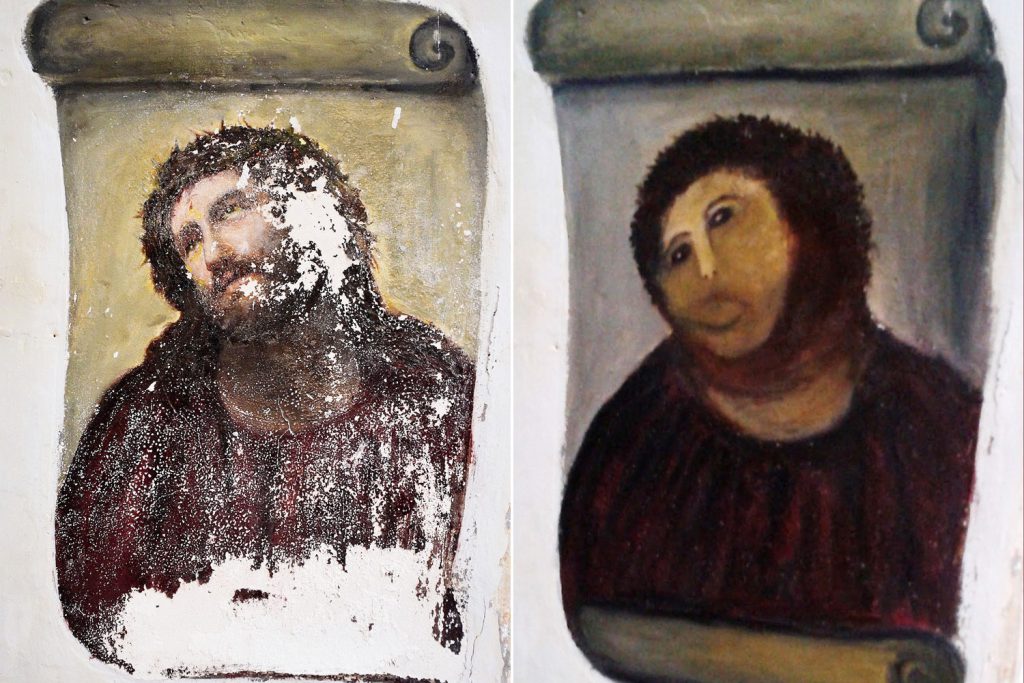Last week, we discussed Jesus’ steps to improving bad relationships and when to end them, if necessary. We mentioned that, if we need to end some relationships, we can never have bitterness in our hearts. So, let’s talk about bitterness and forgiveness.
Let me share a quick story of my own bitterness, because, for Jesus to help us really forgive, we have to have some emotional weight on our minds. Years ago, I was sharing with a friend my frustration with some young people, and she said, ‘You sound so bitter.’ I responded, ‘I guess I am.’ At this other parish, I went to the Gr. 7 teacher and said, ‘I don’t want to visit your class.’ She was intrigued that I could be so hurt. ‘Well, why should I go? I don’t need their attitude. They’re arrogant and disrespectful, and don’t care.’ And so, this built up over time just eating away at me and it wore me down because I care about them.
When we’re bitter, it comes out by not using the person’s name, we avoid making eye contact, we get passive aggressive, and we fantasize about hurting them back.
Now, let’s meditate on the Gospel. First, when St. Peter asks how many times we must forgive, Jesus replies, “Not seven times, but, I tell you, seventy-seven times” (Mt 18:22), meaning there must be no limit. In the Hebrew language, if I make a covenant or oath, I literally say, ‘I seven myself,’ so seven is the number of perfection.
Of course, forgiveness doesn’t mean being a doormat. It simply says, ‘Our relationship may be over, but I still want what’s best for you, and I don’t have resentment in my heart.’
Second, at the end of the parable and Gospel, Jesus says, “‘You wicked slave! I forgave you all that debt because you pleaded with me. Should you not have had mercy on your fellow slave, as I had mercy on you?’ And in anger his lord handed him over to be tortured until he would pay his entire debt. So my heavenly Father will also do to every one of you, if you do not forgive your brother or sister from your heart’” (Mt 18:32-35). He says we’ll go to hell if we do not forgive others. You can’t have bitterness in heaven. Could you imagine: We get to heaven, we look over, and ask with a sigh, ‘What are you doing here?’ We just ruined heaven!
Third, the actual Parable of the Wicked Servant shows us why we must forgive: The wicked servant owes his master some incredible debt, worth, in today’s figures, three billion dollars. He falls on his knees, asking for patience and promising to pay it back, which he can’t. Nevertheless, the master forgives him everything. Then, when another servant owes him three months’ wages, he makes him pay, even though the other servant asked for patience in the same way. The wicked servant receives so much forgiveness but won’t extend it to others.
In essence, it’s a question of justice here: If God forgives us all the times we’ve sworn at people, we should forgive, at the very least, those who swear at us. If God forgives the lies we told in the past, we must forgive the people who lie to us.
Now, we could say, ‘But the sins we’ve committed in the past aren’t as bad as what people have done to us.’ Are we sure? Think hard. Do we remember the worst thing we’ve confessed in Confession, the sin that made us nervous before going, that made us find a priest who didn’t know us?
I remember the one time I ignored Fr. Frank Doyle, SJ the man who led me to think about being a priest; I was playing street hockey, he walked by, and I ignored him. Why did I do that? I basically don’t think about this. But, when I do, I still feel sad. It’s good I remember it, and all the other mean things I did, because it made me more patient with those Gr. 7s. And once I was loving them again, I could discern properly how the Holy Spirit wanted me to respond.
Furthermore, what if the people who hurt us didn’t have as many graces as we did? What if they didn’t have parents as good as we had, the opportunities to know God that we had? What if we were given more grace by God?
The reality of grace is the most important. God’s forgiveness is freely given. We can’t earn it. No one deserves to go to heaven because of the sins we’ve committed (which we’re going to discuss next week). But, God freely offers forgiveness through Jesus’ Cross, which is applied to us in Baptism and Confession.
Most of the famous paintings of Jesus on the Cross have Him looking down, likely because He was dead at that time.
However, when Jesus prayed, “Father, forgive them, for they know not what they do” (Lk 23:34), it’s likely that He looked up, because we know from the Gospels that many times He would look up when praying (Cf. Mt 14:19; Lk 9:16; Jn 11:41; 17:1).
This teaches us that, in order to forgive, we need to look up at God the Father and His forgiveness rather than at the people who’ve hurt us.
Here’s a question on which to reflect: Do we really understand what it means to offend God? A sin done against a good person is worse than against a bad person. For example, if a gang member gets shot by another gang member, that’s a tragedy, but it’s worse if an innocent person gets caught in a crossfire between two gangs. Swearing at our mothers is almost always worse than swearing at our brothers, because our mothers typically love us more. Therefore, when we hurt God, the offence is always terrible, even when it’s a small sin, because we’ve hurt Someone infinitely good and innocent.
This is a 19th century fresco in a church in Spain:
Unfortunately, an 81-year old woman, who wasn’t in her right mind, decided it needed to be restored, so this is what she did:
Ah! If she had ruined our paintings, it would be bad, but she ruined something truly precious. Every sin against God, therefore, is terrible, because it’s like a little nick on a masterpiece. Consider all the times we’ve offended God with our little nicks. This is why we must forgive others.
We don’t need to feel good towards people in order to forgive them; forgiveness is not a feeling but a choice. Now, this doesn’t mean we ignore our need for healing. But, actually, for most of us, forgiveness is how we heal. In May of this year, I told you about Millie, who left her husband and three children for another man. Yet, her husband forgave her, saying, “With all that Christ did to forgive me, how could I look at my wife… and say, ‘You’ve done something so horrible that I can’t forgive you’”. And healing came from this. But, for some of us, forgiveness may only come after the healing, as happened with Faith Hakesley, whom we mentioned three weeks ago: She was only able to forgive her rapist after she experienced God’s love and hope through Pope Benedict XVI.
Whatever the case, we need to focus on God and His forgiveness of our sins. Don’t look at others and their sins. Look up at God.







